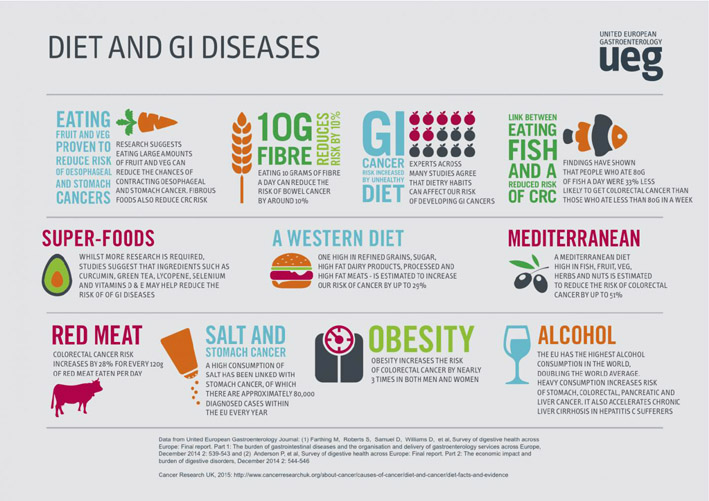HAUPTMENÜ
AWARDS
Forschergeist gefragt: 14. Novartis Oppenheim-Förderpreis für MS-Forschung ausgelobt
FernstudiumCheck Award: Deutschlands beliebteste Fernhochschule bleibt die SRH Fernhochschule
Vergabe der Wissenschaftspreise der Deutschen Hochdruckliga und der Deutschen Hypertoniestiftung
Den Patientenwillen auf der Intensivstation im Blick: Dr. Anna-Henrikje Seidlein…
Wissenschaft mit Auszeichnung: Herausragende Nachwuchsforscher auf der Jahrestagung der Deutschen…
VERANSTALTUNGEN
Wichtigster Kongress für Lungen- und Beatmungsmedizin ist erfolgreich gestartet
Virtuelle DGHO-Frühjahrstagungsreihe am 22.03. / 29.03. / 26.04.2023: Herausforderungen in…
Pneumologie-Kongress vom 29. März bis 1. April im Congress Center…
Die Hot Topics der Hirnforschung auf dem DGKN-Kongress für Klinische…
Deutscher Schmerz- und Palliativtag 2023 startet am 14.3.
DOC-CHECK LOGIN
Experts speaking at the 23rd United European Gastroenterology Week (UEG Week 2015) in Barcelona, Spain, today revealed compelling evidence of the link between excess body weight and risk of colorectal cancer (CRC)
Increased risk of large bowel cancer for each 1 cm rise in waist circumference
Barcelona, ES (October 26, 2015) – Experts speaking at the 23rd United European Gastroenterology Week (UEG Week 2015) in Barcelona, Spain today revealed compelling evidence of the link between excess body weight and risk of colorectal cancer (CRC). John Mathers, Professor of Human Nutrition from the Institute of Cellular Medicine at Newcastle University in the UK presented data showing an overall increase of 18% in relative risk of CRC per 5 unit increase in BMI.
"In addition, in men, there is now evidence that increasing waist circumference in middle age is associated with increased bowel cancer risk", says Prof. Mathers. CRC risk was increased by nearly 60% in men who gained at least 10 cm in waist circumference over 10 years. "This increased cancer risk may be due to persistent inflammation in people with obesity".
Patients with Lynch Syndrome (LS) have a higher than normal risk of CRC because of an inherited defect in one of the genes responsible for repairing DNA. Prof. Mathers presented new data showing that, in people with Lynch Syndrome, CRC risk increases with higher body weight and for those who are obese the risk of CRC is doubled. Quite surprisingly, the increase in CRC risk with higher body weight in people with Lynch Syndrome was about twice as great as that seen in the general population.
Prof. Mathers said "There is now compelling evidence that improved lifestyle, particularly better dietary choices and being more physically active, can help to prevent obesity and this will lower bowel cancer risk". In addition, for those people who are already too heavy, losing weight may reduce their CRC risk but this is an area which requires further study. In his studies with Lynch Syndrome patients, Prof. Mathers observed that aspirin lowered the excess CRC risk seen in patients with obesity, perhaps through its anti-inflammatory effects. "This is a very intriguing finding" said Prof Mathers "which suggests that dietary and other anti-inflammatory agents might be beneficial in reducing CRC risk in people with obesity".
"Bowel cancer is strongly associated with age, obesity and diet – and is driven by inflammation", explains Prof. Mathers. "We can now give the public clear advice on the benefits of staying physically active, eating a healthy diet and avoiding weight gain to lower CRC risk as we get older".

Pict.: New research shows an increased risk of large bowel cancer for each 1 cm rise in waist circumference. In addition, in men, there is now evidence that increasing waist circumference in middle age is associated with increased bowel cancer risk. Credit: UEG
References
1. Ning Y et al. (2012) Obesity Reviews 11, 19-30
2. Song M et al. (2015) Int. J. Epidemiol. PMID: 26403814
3. Movahedi M et al. (2015) J. Clin. Oncol. PMID: 26282643
About UEG Week
UEG Week is the largest and most prestigious gastroenterology meeting in Europe and has developed into a global congress. It attracts over 14,000 participants each year, from more than 120 countries, and numbers are steadily rising. UEG Week provides a forum for basic and clinical scientists from across the globe to present their latest research in digestive and liver diseases, and also features a two-day postgraduate course that brings together top lecturers in their fields for a weekend of interactive learning.
About UEG
UEG, or United European Gastroenterology, is a professional non-profit organisation combining all the leading European societies concerned with digestive diseases. Together, its member societies represent over 22,000 specialists, working across medicine, surgery, paediatrics, gastrointestinal oncology and endoscopy. This makes UEG the most comprehensive organisation of its kind in the world, and a unique platform for collaboration and the exchange of knowledge.
To advance standards of gastroenterological care and knowledge across Europe and the world, UEG offers numerous activities and initiatives, including:
-
UEG Week, the biggest congress of its kind in Europe, and one of the two largest in the world.
-
UEG Education, the universal source of knowledge in gastroenterology, providing online and classroom courses, a huge online library and delivering the latest GI news, fostering debate and discussion
-
Training Support, funding for innovative training and educational programmes, as well as international scientific and professional co-operations
-
UEG Journal, published bi-monthly, covering translational and clinical studies from all areas of gastroenterology
-
EU Affairs, promoting research, prevention, early diagnosis and treatment of digestive diseases, and helping develop an effective health policy for Europe
Spink Health, 26.10.2015 (tB).



